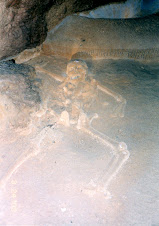MC portion Tuesday 1/31, Non-MC Portion Wednesday 2/1
Test Hints and Tips:
1) There will be approximately 55-60 multiple choice questions and 6-8 total bonus and "special" bonus questions . . . read the directions carefully!
2) Look at the documents in the Non-MC Portion Hints section below . . . you may see some of these on the multiple choice portion, as well.
3) Analyze the cartoons below (click on them to see a larger version):
A. In the cartoon below, who is the gentleman? What is the cartoon implying about him? How did he get his power?
B. In the cartoon below, the caption says: THE TRUST GIANT'S POINT OF VIEW "What a funny little government" . . . what is this cartoon implying about the government and its relationship to the trusts?
C. Who are Cyrus Field and Jay Gould? What are they holding in front them, and what do these things have to do with the point the cartoonist is trying to make?
D. What is happening to Uncle Sam in the cartoon below? Is this cartoon pro- or anti-immigration?
E. What is Lady Liberty doing in the cartoon below? Why? Who are the people in the background, and what do they have to do with the two people in the foreground? Is this cartoon pro- or anti-immigration?
Non-MC Portion Hints, Tips, and Documents (topic = Booker T. Washington and W.E.B. Du Bois . . . know them both . . . know them well!):
Contrast this document and author . . .
“To those of the white race who look to the incoming of those of foreign birth and strange tongue and habits for the prosperity of the South, were I permitted I would repeat what I say to my own race,“Cast down your bucket where you are.” Cast it down among the eight millions of Negroes whose habits you know, whose fidelity and love you have tested in days when to have proved treacherous meant the ruin of your firesides. Cast down your bucket among these people who have, without strikes and labour wars, tilled your fields, cleared your forests, built your railroads and cities, and brought forth treasures from the bowels of the earth, and helped make possible this magnificent representation of the progress of the South. Casting down your bucket among my people, helping and encouraging them as you are doing on these grounds, and to education of head, hand, and heart, you will find that they will buy your surplus land, make blossom the waste places in your fields, and run your factories. While doing this, you can be sure in the future, as in the past, that you and your families will be surrounded by the most patient, faithful, law-abiding, and unresentful people that the world has seen. As we have proved our loyalty to you in the past, in nursing your children, watching by the sick-bed of your mothers and fathers, and often following them with tear-dimmed eyes to their graves, so in the future, in our humble way, we shall stand by you with a devotion that no foreigner can approach, ready to lay down our lives, if need be, in defense of yours, interlacing our industrial, commercial, civil, and religious life with yours in a way that shall make the interests of both races one. In all things that are purely social we can be as separate as the fingers, yet one as the hand in all things essential to mutual progress....
The wisest among my race understand that the agitation of questions of social equality is the extremest folly, and that progress in the enjoyment of all the privileges that will come to us must be the result of severe and constant struggle rather than of artificial forcing. No race that has anything to contribute to the markets of the world is long in any degree ostracized. It is important and right that all privileges of the law be ours, but it is vastly more important that we be prepared for the exercise of these privileges. The opportunity to earn a dollar in a factory just now is worth infinitely more than the opportunity to spend a dollar in an opera-house.”
Booker T. Washington “Atlanta Compromise Address” (September 18, 1895)
. . . with this document and author . . .
“They do not expect that the free right to vote, to enjoy civic rights, and to be educated, will come in a moment; they do not expect to see the bias and prejudices of years disappear at the blast of a trumpet; but they are absolutely certain that the way for a people to gain their reasonable rights is not by voluntarily throwing them away and insisting that they do not want them; that the way for a people to gain respect is not by continually belittling and ridiculing themselves; that, on the contrary, Negroes must insist continually, in season and out of season, that voting is necessary to modern manhood, that color discrimination is barbarism, and that black boys need education as well as white boys.”
Source: W.E.B. Du Bois, The Souls of Black Folk (1903)
Check out the graphs below . . . how do these statistics relate to the philosophies and methods of Washington and Du Bois?



















